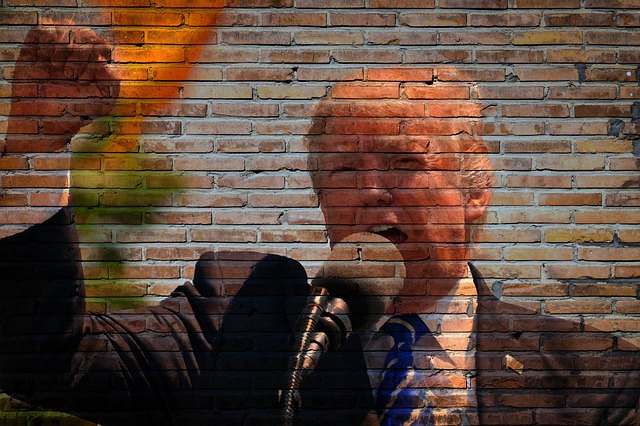The Trump Gold Card, announced by Executive Order on September 19, 2025, was created by the Trump administration, with President Donald Trump as the driving force behind the program’s introduction and promotion. The program was established to be administered by relevant government departments, including the Department of Commerce, Department of Homeland Security, and State Department. It is a new immigration pathway for wealthy investors and highly skilled individuals who contribute at least $1 million (or $2 million via an entity) to the United States. It provides renewable residency, work authorization, and expedited access to green card categories, while imposing strict loyalty and compliance requirements.

Background — How the Trump Gold Card Emerged
The Trump Gold Card was created by the Executive Order of September 19, 2025: The Gold Card.
Section 1 of the EO:“The Secretary of Commerce, in consultation with the Secretary of State and the Secretary of Homeland Security, shall establish a Gold Card Program for foreign nationals who provide significant gifts to the United States.”
Trump signed the executive order establishing the Gold Card program.
It was designed as part of Trump’s broader 2025 immigration agenda, following:
- The Big Beautiful Bill that expanded ICE and CBP powers
- Longstanding H-1B visa restrictions
- Efforts to replace the fraud-prone EB-5 investor program with a higher-cost alternative
Commerce Secretary Howard Lutnick played a key role in promoting and implementing the Gold Card program, serving as a central official in its rollout and public explanation.
According to the White House Fact Sheet, the Gold Card is intended to “attract the world’s most talented and financially committed individuals.”
What Does the Trump Gold Card Do?
The Trump Gold Card offers renewable residency, work authorization, and family sponsorship for foreign nationals meeting financial and security requirements.
Section 3 of the EO:“A qualifying gift under this order shall be treated as sufficient evidence of eligibility under section 203(b)(1)(A) or section 203(b)(2)(A) and (B) of the Immigration and Nationality Act, permitting expedited adjudication of visas or adjustment of status.”
This means contributions are legally recognized as proof of “extraordinary ability” or “national interest” under immigration law, fast-tracking applications. The Gold Card program provides an expedited process for eligible applicants, streamlining their path to U.S. permanent residency. U.S. immigration services are responsible for processing these applications and conducting background checks as part of the program.
Who is Eligible for the Trump Gold Card?
From the Fact Sheet:
“The Gold Card Program is designed to attract the world’s most talented and financially committed individuals, ensuring that only those with a demonstrated commitment to America’s prosperity are given expedited pathways to residency.”
The program prioritizes individuals selected on the basis of merit, exceptional value, and global talent, aiming to bring in those who can significantly contribute to innovation, investment, and economic growth.
Eligibility requirements include:
- $1,000,000 gift (individual) or $2,000,000 gift (corporation/partnership)
- Biometric and security vetting by DHS
- Compliance with U.S. tax laws
- Signed loyalty declaration to U.S. constitutional principles
- Applicants may be required to pay a nonrefundable processing fee
- A waiting list may apply due to high demand
Likely applicants:
- Wealthy investors and entrepreneurs, especially wealthy individuals and companies seeking U.S. residency
- Doctors, scientists, and engineers with capital
- Multinational executives with corporate backing—companies can use the program to transfer employees or sponsor key employees for residency
- Tech companies and other businesses that may sponsor employees through the program
Trump Gold Card vs Existing U.S. Visas
| Visa Type | Requirement | Limitation | Gold Card Difference |
|---|---|---|---|
| H-1B | Employer sponsorship, specialty work | Lottery cap, 6-year max | Gold Card bypasses lottery, renewable |
| O-1 | Proof of international acclaim | Narrow eligibility | Gold Card requires wealth, not acclaim |
| EB-5 | $800k–$1M job-creating investment | Fraud, delays | Gold Card requires larger gift, faster |
| EB-2 NIW | National interest waiver | Slow adjudication | Gold Card gift itself = NIW evidence; allows applicants to gain residency and lawful permanent resident status in record time compared to traditional immigrant visa categories |

Costs, Fees, and Financial Obligations
The Trump Gold Card requires a minimum $1 million gift, making it the costliest U.S. immigration program. Applicants must be prepared to spend significant sums to qualify for the program, reflecting the exclusive nature and financial commitment required.
Section 2 of the EO:“A foreign national shall be eligible to participate in the Gold Card Program upon making a gift of no less than $1,000,000 to the United States. Contributions made through corporations, partnerships, or other entities shall not be less than $2,000,000.”
Section 4 of the EO:“The Secretary of Commerce shall deposit such gifts into a fund in the Treasury of the United States. The fund shall be used exclusively to promote American commerce and industry.”
The program’s structure may offer certain tax advantages, including potential exemptions on non-U.S. income. Taxes on income for Gold Card holders are an important consideration, as the program is designed to attract high-net-worth individuals seeking residency benefits and favorable tax treatment.
Advantages of the Trump Gold Card
For applicants:
- Guaranteed residency without lottery or employer dependence
- Prestige as part of an elite program
- Ability to sponsor family members
- Possible pathway to permanent residency
For the U.S. government:
- Billions in new Treasury contributions
- Enhanced control over who is admitted
- Strengthened funding for American commerce
Criticisms and Risks of the Trump Gold Card
Civil liberties advocates argue that it creates a “pay-to-play” immigration system.
From the Fact Sheet:
“All applicants will undergo rigorous background checks, biometric vetting, and annual compliance reviews to ensure the integrity of the program.”
While intended as a safeguard, critics see this as intrusive, and some argue loyalty declarations could raise First Amendment concerns.
Other risks:
- Elitism excluding middle-class immigrants
- Fraud, mirroring EB-5’s history
- Reduced diversity in immigration admissions
Global Comparisons — How Does It Stack Up?
- EU Blue Card: Skills-driven, not wealth-driven
- Canada Start-Up Visa: Encourages entrepreneurs, lower cost
- Singapore Gold Pass: For business leaders, lower threshold
- UAE Golden Visa: Wealth-based, but cheaper
The Trump Gold Card is unique in combining the highest price point with ideological loyalty requirements. It is marketed as a way for applicants to unlock life in America, offering a pathway to citizenship or permanent residency and the chance to start a new chapter in the United States. The program is also designed to attract individuals who can contribute to the U.S. economy, supporting economic growth and financial stability.
Common Myths About the Trump Gold Card
- “It buys citizenship.” False. It grants renewable residency, not automatic citizenship.
- “It replaces H-1B.” False. It exists alongside H-1B.
- “It’s available to anyone rich.” False. Applicants must also clear security and tax vetting.
- “It guarantees a green card.” False. It’s a pathway, not an entitlement.
Practical Guide — How to Apply (If Implemented)
Section 6 of the EO:
“Within 90 days of the date of this order, the Secretary of Commerce, the Secretary of State, and the Secretary of Homeland Security shall publish regulations to implement the Gold Card Program.”
Likely steps will include:
- Pre-screening for wealth and eligibility
- Submission of application + loyalty declaration
- Payment of $1M (or $2M via entity) to Treasury fund
- DHS biometric and security checks
- Approval and Gold Card issuance
- Renewals every 3–5 years
Trump Gold Card in the Courts and Media
Legal scholars anticipate challenges to the program, especially around wealth discrimination and loyalty oaths.
Media coverage is divided:
- Supporters call it “bold innovation”
- Critics call it “selling U.S. residency”
- International comparisons frame it as harsher than the UAE Golden Visa
FAQs on Trump’s September 19, 2025 Gold Card Immigration Program
Common Questions About the Trump Gold Card
What is the Trump Gold Card immigration program?
The Trump Gold Card is a residency and work authorization program created by Executive Order on September 19, 2025. It allows wealthy investors and certain skilled individuals to fast-track their immigration status in exchange for a “gift” contribution of $1 million (individual) or $2 million (corporation) to the U.S. government.
Why was the Trump Gold Card program created?
The program was introduced to attract capital and high-value individuals while reducing reliance on family-based and diversity immigration. It is part of Trump’s broader immigration reform agenda in 2025.
How much does the Trump Gold Card cost?
The Executive Order specifies a minimum contribution of $1 million for individuals and $2 million for corporations, partnerships, or similar entities.
Who qualifies for the Trump Gold Card?
Eligibility is restricted to individuals or entities making the required contributions, passing DHS security and biometric screening, complying with U.S. tax laws, and signing a loyalty declaration to U.S. constitutional values.
Does the Gold Card guarantee U.S. citizenship?
No. The Gold Card provides renewable residency and work authorization. Citizenship is not automatic and would require going through the naturalization process after obtaining a green card.
Does the Gold Card automatically grant a green card?
Not automatically. However, the Executive Order states that qualifying gifts count as sufficient evidence of eligibility under EB-1 or EB-2 visa categories, which can lead to a green card if all other requirements are met.
Can family members be included in the Gold Card program?
Yes. Spouses and children may be eligible to accompany the primary applicant, but additional fees or contributions are required for dependents.
What are the benefits of the Gold Card?
Benefits include renewable multi-year residency, work authorization without employer sponsorship, the ability to sponsor immediate family, and expedited visa processing.
What are the risks of applying for the Gold Card?
Risks include high costs, potential program changes under future administrations, annual compliance checks, and possible denial if DHS background screenings uncover issues.
Where does the money from the Gold Card go?
Contributions are deposited into a U.S. Treasury fund dedicated to promoting American commerce and industry.
How does the Gold Card differ from the EB-5 investor visa?
The EB-5 requires an $800,000–$1 million investment tied to job creation projects, often with long wait times. The Gold Card requires a higher, direct contribution to the government ($1–2 million) but offers faster processing.
How does the Gold Card compare to the H-1B visa?
The H-1B requires employer sponsorship, is subject to a lottery, and is capped at six years. The Gold Card does not require sponsorship or a lottery but is only available to individuals who can afford the required contribution.
Can Gold Card holders access U.S. welfare or benefits programs?
No. The program specifically excludes Gold Card holders from federal welfare or public benefit eligibility.
What kind of background checks are required for the Gold Card?
Applicants must undergo DHS biometric vetting, security screenings, tax compliance reviews, and loyalty declarations affirming commitment to U.S. constitutional values.
What happens if a Gold Card holder fails a renewal review?
If DHS determines a holder is noncompliant with security, tax, or loyalty requirements, renewal can be denied and the individual may lose status.
When will the Gold Card program begin accepting applications?
The Executive Order requires the Secretaries of Commerce, State, and Homeland Security to publish implementing regulations within 90 days of the order. Applications are expected to open shortly thereafter.
Does the Gold Card face legal challenges?
Yes. Civil rights groups and immigration lawyers have warned that the program may be challenged in court for discriminating based on wealth and for requiring loyalty pledges.
Is the Trump Gold Card permanent immigration law?
No. It was created by Executive Order, not an act of Congress. Future presidents could revoke, amend, or replace it.
Can corporations or partnerships apply for the Gold Card?
Yes. Contributions of $2 million or more by corporations, partnerships, or other entities may qualify under the program.
Does the Gold Card count toward U.S. permanent residency time requirements?
Yes. Time spent under Gold Card status is expected to count toward residency requirements for naturalization, but only if the holder successfully transitions to a green card.
Why is the Gold Card controversial?
Critics argue it creates a two-tier system that favors the wealthy while cutting opportunities for family-based and humanitarian immigrants. Others warn it may invite fraud and corruption similar to EB-5.
Uncommon and Advanced Questions About the Trump Gold Card
Can the Trump Gold Card be revoked for political speech?
Possibly. Because applicants must sign a loyalty declaration affirming U.S. constitutional values, critics argue that political speech—especially speech critical of U.S. government policies—could be used against a holder during annual compliance reviews.
Can the Gold Card be purchased with cryptocurrency or digital assets?
The Executive Order requires contributions to be deposited into a Treasury fund. While it does not explicitly mention cryptocurrency, future regulations will likely require U.S. dollar transfers, not crypto or digital tokens.
What happens if the Gold Card program is struck down in court?
If federal courts invalidate the program, pending applications may be canceled. Approved Gold Card holders could lose status unless Congress passes legislation to preserve it.
Are contributions refundable if an application is denied?
The Executive Order does not provide for refunds. Applicants who fail security or tax compliance checks may lose their contribution entirely.
Can the Gold Card be inherited or transferred to children?
No. Each applicant must independently qualify. Children must be included as dependents on the primary applicant’s filing.
Does the Gold Card give voting rights?
No. Only U.S. citizens may vote. Gold Card holders remain non-citizens with temporary residency rights.
Can Gold Card holders serve in the U.S. military or government positions?
No. Restricted positions remain limited to U.S. citizens or lawful permanent residents.
Can a Gold Card contribution be made by a foreign corporation?
Yes, but it must meet the $2 million minimum and pass ownership and control vetting by DHS.
Can a Gold Card override other entry bans or restrictions?
No. DHS retains authority to deny entry for security or public safety reasons, even if the contribution is made.
Does the Gold Card protect against deportation for crimes?
No. Holders remain subject to removal if convicted of deportable offenses.
Will Gold Card holders qualify for Social Security or Medicare?
No. The program excludes eligibility for federal welfare or entitlement programs.
Can Gold Card status be canceled for tax noncompliance?
Yes. Annual compliance reviews include tax checks, and noncompliance can lead to revocation.
Does time spent in Gold Card status count toward citizenship?
Only if the holder transitions to a green card and satisfies naturalization requirements.
What if contributions come from a joint account or trust?
Regulations will require traceability to the applicant. Complex trust structures may face extra scrutiny.
Can Gold Card status be renewed indefinitely?
Yes, as long as requirements are met, but future administrations could change program rules.
What happens if a Gold Card holder becomes a public charge?
If DHS finds a holder dependent on welfare or in violation of financial independence rules, renewal may be denied and status revoked.
Could Congress abolish the Gold Card program?
Yes. Since it was created by Executive Order, Congress or a future president could end or replace it.
Key Takeaways — What the Trump Gold Card Means
- Wealth is now an official immigration criterion under Trump’s EO
- It bypasses existing visa hurdles with cash contributions
- It’s already controversial and likely to be litigated
- For elites, it may be the fastest new pathway to residency
Speak with an Experienced Immigration Lawyer About Trump’s Gold Card Program
If you have questions about Trump’s Gold Card immigration program—whether you’re a potential applicant, an entrepreneur, or an investor—you should not navigate this new and controversial policy alone. The program involves multi-million-dollar contributions, strict DHS vetting, and complex legal implications, making experienced legal guidance essential.
Attorney Richard T. Herman has been representing immigrant investors, entrepreneurs, and families for more than 30 years. As the co-author of the acclaimed book Immigrant, Inc. and founder of the Herman Legal Group, Richard has built a career helping high-net-worth immigrants and business leaders achieve their American dreams. His team has the knowledge and global experience to:
- Explain how the Trump Gold Card program fits into existing U.S. immigration law.
- Assess your eligibility, risks, and investment structure before applying.
- Guide you through DHS security, tax, and compliance requirements.
- Protect your rights if the program faces legal challenges or political changes.
- Offer multilingual, nationwide, and international legal support tailored to investors and entrepreneurs.
This is not the kind of immigration pathway where mistakes can be undone. With $1–2 million at stake, your future in the United States demands careful, professional representation.
📞 Call (216) 696-6170 today or schedule a confidential consultation with Richard T. Herman. Consultations are available virtually worldwide or in-office across the U.S.
Don’t risk your investment—or your future in America. Let a trusted immigration lawyer with 30+ years of experience guide you through Trump’s Gold Card program.




